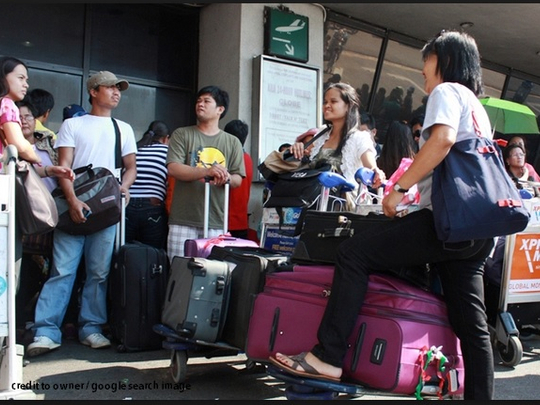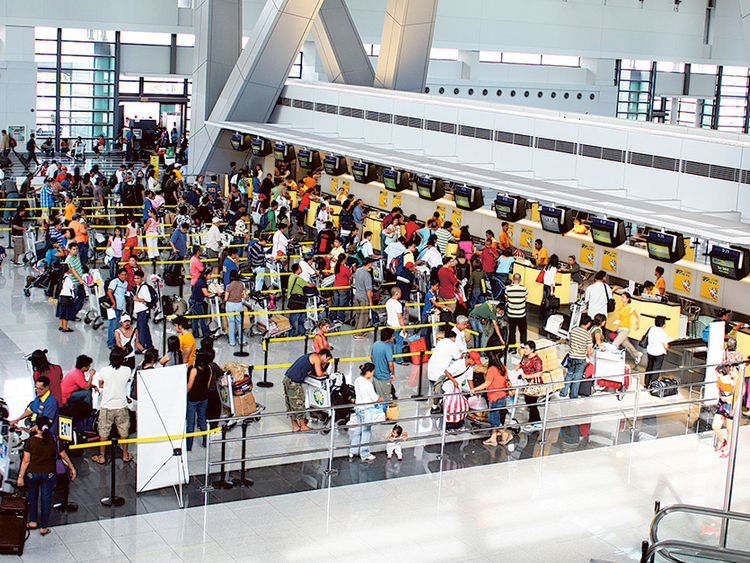
More than 43,000 Filipinos were barred from leaving the Philippines in the last 12 months on suspicion of being "tourist workers", according to Manila's Bureau of Immigration (BI).
The tally from June 2016 recorded a total of 43,233 Filipinos who were "screened out" from different international gateways in the country, a senior immigration official said in Manila.
“Our Immigration Officers at the Ninoy Aquino International Airport (NAIA) and other ports of entry will remain vigilant in screening outbound Filipino travelers to make sure that they do not fall prey to human traffickers and illegal recruiters,” said BI Commissioner Jaime Morente in a statement.
The agency also barred 118 foreign-registered sex offenders from entering the country last year, it added.
“We will not relax our guard so long as many of our countrymen are being lured by these syndicates to illegally travel abroad by taking advantage of their poverty,” Morente said.
Marc Red Mariñas, BI Port Operations Division chief, said that in the last 12 months ending June 30, the huge of number of "off-loading" of outbound passengers was due to their failure to comply with the requirements proving they are legitimate tourists and not “tourist workers” — a term used for undocumented overseas Filipino workers (OFWs) disguised as tourists.
In a statement issued on July 7, the bureau vowed that "there will be no letup in its campaign against human trafficking."
A lion's share of "off-loading", or 90 per cent, took place at Manila's Ninoy Aquino International Airport, while the rest took place in Mactan, Clark, Kalibo, Zamboanga, Davao and Iloilo international airports.
Morente said that the anti-human trafficking drive has allowed the Philippines to fall under Tier 1 category, which means it has acknowledged that the crime is prevalent and has made sustained efforts to suppress it.
Trafficking victims
Officials also disclosed that 502 of the passengers, suspected of being trafficking victims, were turned over to the Inter-Agency Council Against Trafficking (IACAT) for investigation.
In addition, the cases of 433 others were referred to the Philippine Overseas Employment Administration (POEA) for appropriate action.
POEA is a quasi-judicial agency that regulates overseas employment of Filipinos.












